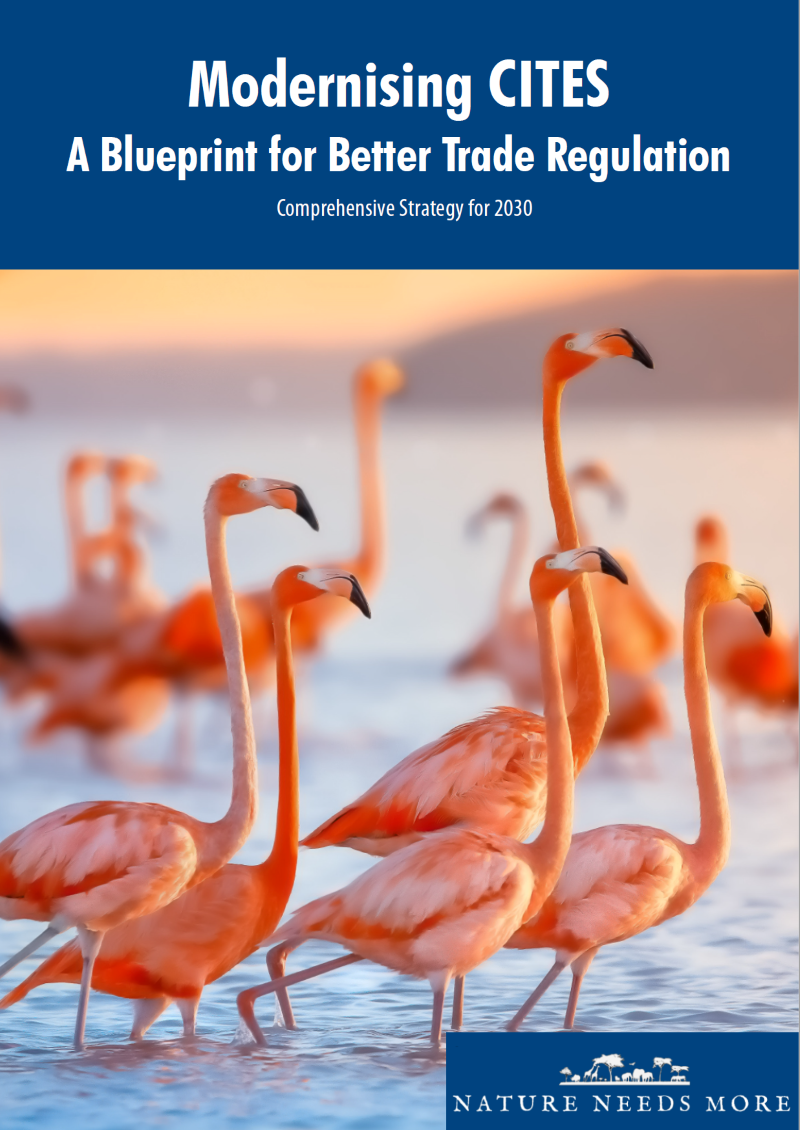
Businesses and their investors have had 50 years to prove they could curb their excess with voluntary governance systems. They have decisively failed. Even now, in the face of natural and heath disasters, the success of new iterations of voluntary self-governance is being exaggerated. It is time to call them what they are, Phantom Solutions. We need to get real.
The delusion of the need for constant growth, which is the desired state for investors, business and governments is accelerating the world to a tipping point from which we will not recover. We already live in a changed reality and even some of the key institutions who have driven us to this precipice are changing their tune; recently the World Economic Forum stated that environmental degradation was now considered a threat to humanity that could “bring about societal collapses with long‑lasting and severe consequences”. The problem now is that many of the same institutions that have profited from this over exploitation want to profit from the ‘fix’ and in many cases the fixes they propose are simply an illusion to maintain a business-as-usual approach.
The BU$IN€$$ of Nature Report is the third report in a series investigating the unchecked exploitation of wild species for profit. In it we discuss the many phantom solutions that are being promoted with the aim of delaying what will be needed to tackle biodiversity loss, namely, and as a very minimum, mandatory regulation of the trade in wild species.
Our first report, Debunking Sustainable Use, published in 2020, outlined that any discussions of sustainability without the corresponding transparency is simply a neoliberal ideology. In the report we highlighted the SUS in the current SUStainability strategy. The tragedy is that the sustainable use model is the foundation used by too many NGOs and IGOs, while they clinically sidestep the lack of supply chain transparency and lack of evidence that ‘sustainable use’ – as practiced today – is saving wild species from overexploitation.
Our second report, published in 2021, Modernising CITES – A Blueprint for Better Trade Regulation, outlines a new regulatory framework for CITES based on whitelisting (reverse-listing), regulating business directly and businesses paying the full cost of regulation.
Moving CITES to a reverse-listing model, which was first suggested in 1981 at CITES CoP3, would mean that the convention is responsible for regulating ALL trade in wild species. Such a move is critical given that the landmark May 2019 IPBES report into the global extinction crisis confirmed that direct exploitation for trade is the most important driver of decline and extinction risk for marine species and the second most important driver for terrestrial and freshwater species.
In this new report we discuss the many phantom solutions that are being promoted with the aim of delaying what will be needed, namely mandatory regulation of the trade in wild species, to tackle biodiversity loss. The days of business and investors taking all profit and no responsibility must come to an end. Business, industries and investors know this is on the cards, as evidenced by the plethora of phantom solutions they have proposed in recent years. These phantom solutions, which we explore in the report, cannot be allowed to divert attention away from tackling the biodiversity crisis in the same way as with the last thirty years in responding to climate change.
While the fossil fuels industry has perpetrated a multi-decade, multibillion dollar disinformation, propaganda and lobbying campaign to delay climate action by “repositioning global warming as theory, not a fact”, with advertorials using broken record messaging of “weak” evidence, “non-existent” proof, inaccurate climate models etc, this same type of message is not possible for biodiversity loss.
Conservation organisations and academia have been monitoring the decline of species for decades. In the case of biodiversity loss, businesses and industries can’t “reposition biodiversity loss as a theory, not a fact”. Instead for the last two decades or more business have focused on producing glossy sustainability reports, paying for sustainability advertorials and supported the rise of sustainability editors, managers, directors etc. But while much has been written, little has provided any proof.
This third report was initially planned for publication in 2022. Given the delays in finalising the Kunming-Montreal global biodiversity framework and the uncertainty in how the world would respond to the global pandemic, we decided to wait and watch.
Sadly, what has crystalised is possibly the worst-case scenario, namely business and investors working out that they can continue to profit from the extinction crisis by proposing a new range of phantom solutions (offsets, credits, ESGs etc) to avoid their main fear of significant regulation by governments.
Even worse, governments, IGOs and even conservation NGOs have bought into these phantom solutions, which will do nothing to address the biodiversity crisis. State and non-state actors are still afraid of the power wielded by large corporations and reluctant to enlist the public to challenge this power, despite ever-growing public concern over both climate change and biodoversity loss.
Whilst addressing climate change is not possible under capitalism, we can reverse course on biodiversity loss with stringent and mandatory government regulation of all businesses involved in biomass extraction. Of course, the scale of the required regulation is only possible by breaking the stranglehold that large corporations and their wealthy investors have on our politicians, media and institutions.
Will more people demand a managed transition, requiring industry regulation, closing tax loopholes and a commitment to degrowth? Or will we follow a more chaotic route to the end of the cycle, as discussed by Peter Turchin and Ray Dalio? The BU$IN€$$ of Nature Report outlines some of the real solutions needed.
Interestingly, these solutions aren’t new, we simply have to remember that we have had periods, in recent history, where certain industries were subjected to drastic regulation as the result of a crisis.



